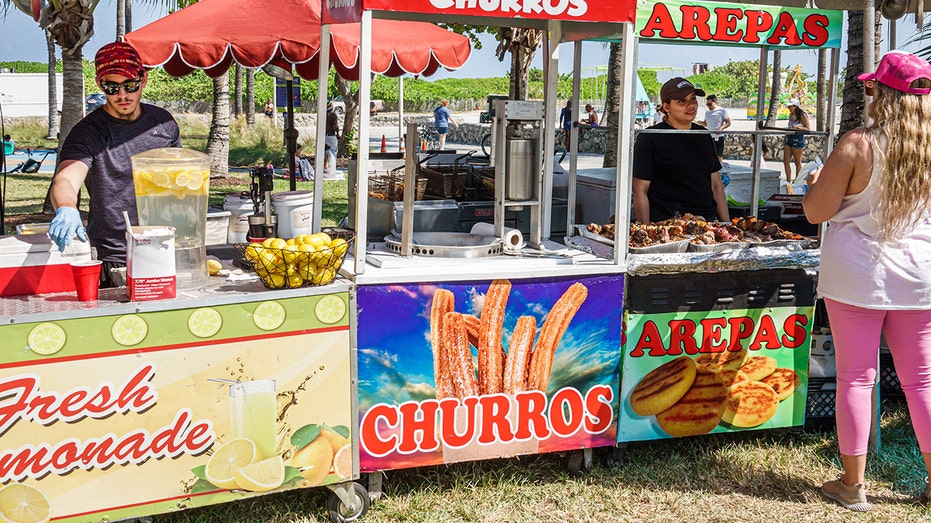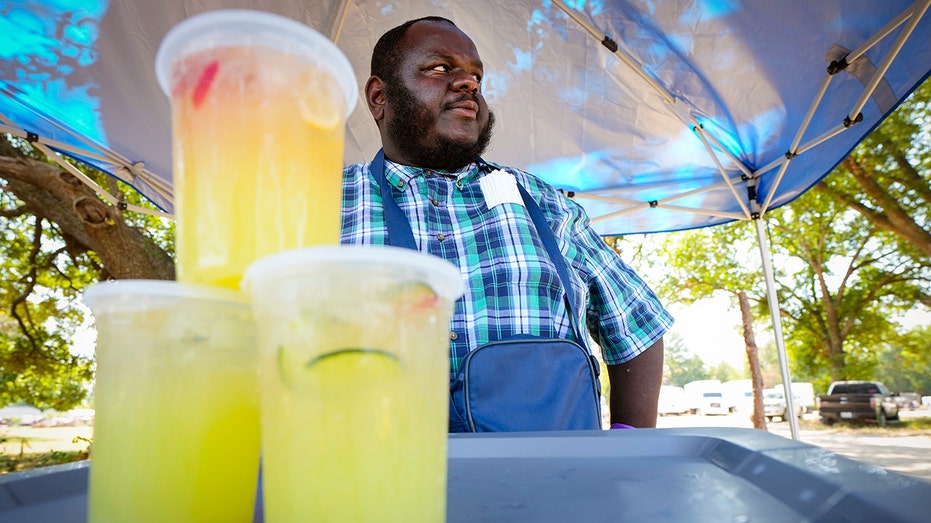Adults are cashing in on a business model traditionally used by children to bring in some extra money: lemonade stands.
No longer just a juvenile summer afternoon activity, people in their 20s and 30s across the U.S. are squeezing lemons to pay off bills, and selling their refreshing beverages at farmers markets, festivals and concerts.
“The cost of living is kind of high and I have a lot of expenses,” Washington, D.C., resident Malia Blake, 26, told the Washington Post. “I’m constantly looking for ways outside of my 9-to-5 [job] to put towards my debt and my future. Lemons are cheap. I thought I could do this, too.”
Although she works in corporate communications, Blake said she has around $40,000 in debt from student loans, credit cards and a car that she would like to tackle before attending law school.
SMALL BUSINESS OWNERS IN THE MIDWEST SEEING STRESS FROM CONSUMERS
As the old saying, “It takes money to make money,” goes, Blake spent $1,500 in May on coolers, a lemon slicer, a banner and other supplies to get Malia’s Main Squeeze going. Then, she had to research where she could set up shop.
“I didn’t get much traffic. It was discouraging, but I wanted to give it a chance,” she said of her first event on Mother’s Day.
Now, her sales are about $1,000 to $1,500 per event. Cups of her lemonade sell for $8 a pop, in the flavors of watermelon, mango, strawberry, hibiscus and plain.
The small business entrepreneur is using social media, and understands sales are dependent on weather and the season.
“The support I’ve gotten in such a short amount of time has been crazy. I post where I’m going to be at and my TikTok supporters come find me to get lemonade,” she told the Post.
EX-TRUMP OFFICIAL FEARS FATE OF SMALL BUSINESSES UNDER A HARRIS ADMIN

Just over 700 miles away in Owensboro, Kentucky, Elizabeth Williams runs a mobile lemonade stand she created from a former horse trailer she bought on Facebook Marketplace.
“The profit margins are really great. There’s no alcohol so you don’t have to deal with a lot of licenses or permits,” Williams told the Post.
Williams, 23, runs her business across Kentucky, Tennessee and Indiana from the months of April through August. She made $80,000 in sales last year, she said, which equates to about $2,000 to $10,000 per event.
Even after hiring six to eight employees to assist, she’s been able to pay off a small student loan and cover her living expenses during the school year.

Before you go and start squeezing lemons, keep in mind that cities and states have different laws about selling food and drinks.
“Generally, a person selling cold food to go is not required to obtain a seller’s permit,” California’s Department of Tax and Administration Office of Public Affairs told the Sacramento Bee.
Read the full article here











